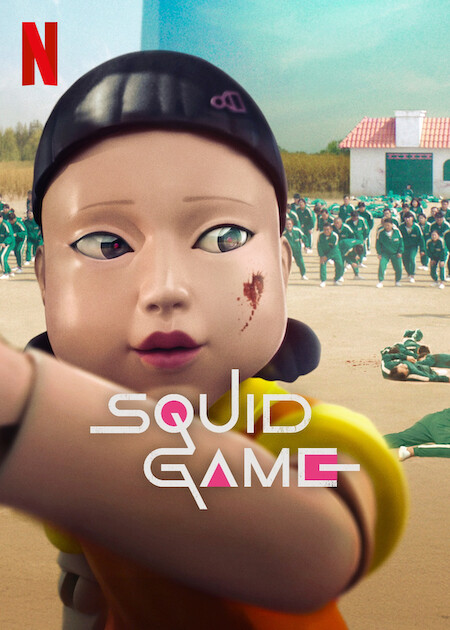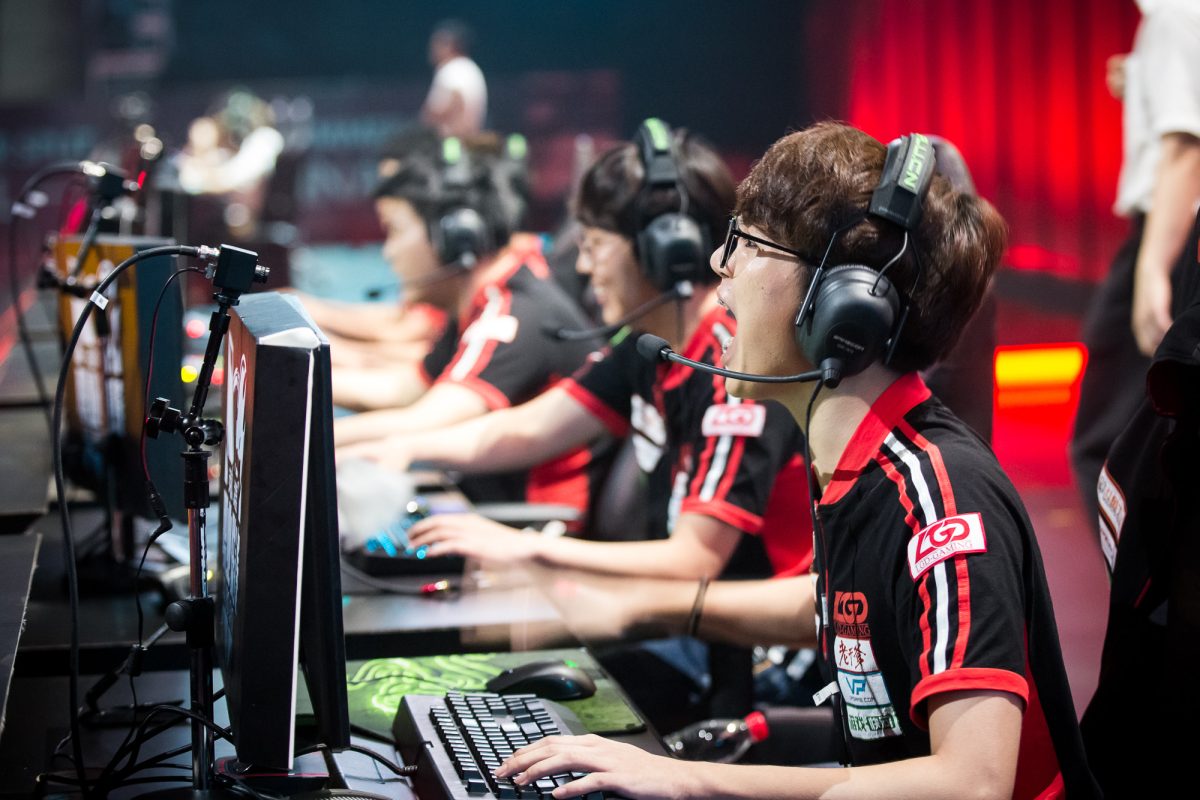“Squid Game’s” back with a new season, and it’s the talk of campus
“Squid Game” is a South Korean survival drama series created by director Hwang Dong-hyuk, where financially struggling individuals compete in deadly children’s games for a massive cash prize. As the games progresses, the contestants, played by a cast including Lee Jung-jae, Park Hae-soo, and Jung Ho-yeon, must face moral dilemmas and deadly consequences, leading to intense psychological tension. The series explores themes of inequality, desperation, and the human will to survive, captivating audiences with its gripping narrative and thought-provoking commentary on society.
Edmon Tong, a senior, liked the theme of poor vs. rich in “Squid Game.”
“I think it’s kind of interesting that this could actually be happening in real life, especially with watching the lifestyle of the poor versus the rich,” he said.
The unique plot that attracts him to “Squid Game,” especially with the theme of being a lower-class in a very wealthy country. The show shares the harsh reality of South Korea’s economic inequality, conveying how the desperate poor, trapped in a system of ruthless competition, are pushed to extreme measures to survive.
Edmon had only good things to say on this show. He highlights the uniqueness of the show, emphasizing its intriguing plot that, despite its fictional nature, feels disturbingly plausible in reflecting the stark divide between the wealthy and the impoverished.
The reference to the real-world implications of such a dystopian scenario draws attention to the show’s power to not only entertain but also provoke thoughts about the consequences of economic inequality. The blend of suspenseful drama and social critique makes “Squid Game” more than just a Netflix hit— it’s a mirror to the darker sides of modern society, making it a must-watch for anyone interested in both entertainment and reflection on class struggles.
“Everyone says that season one was the best because it was so good, so it made people wonder how could they make a second season as good?” Edmon said. “But with the second season, ‘Squid Game’ opened my eyes to a different dimension that very intense because instead of the players vs. players it was the players vs. the controllers of the game.”
Edmon acknowledges the high expectations that viewers would have on “Squid Game’s” second season as the first one was such a hit. Although, he praises how its new season showed a new perspective of the players against orchestrators of the game compared to the original player-versus-player dynamic.
In season two of “Squid Game,” the players are no longer just fighting for their lives against each other but are pitted against the masterminds behind the game, turning the deadly competition into a high stakes battle for freedom against a shadowy, omnipotent force. New stars like Gong Yoo, Lee Jung-jae, and Wi Ha-joon join the returning cast, including Park Hae-soo and Jung Ho-yeon, bringing fresh intensity to the evolving struggle for survival and power.
Edmon is one of many viewers and fans who appreciate and enjoy this new perspective as it deepens the tension of the series, shifting the focus from a mere survival game to a complex battle against the very architects of the cruel competition.
Similarly, Sarah Klumpp expressed satisfaction with the series, but wasn’t particularly excited, as she expected the second season to mirror the first and already had a sense of what would happen to the players in the game.
“I’m not sure why it’s so popular” she said. “I mean I question my own morality of watching a TV series of people dying and somehow finding it entertaining. But you also get to know the characters and what role they play in the TV series which is also entertaining, like Thanos.”
Klumpp highlights the complex relationship viewers have with dark entertainment, where the allure of intense drama and character development can overshadow the moral discomfort of watching violence. Her comparison to Thanos highlights the appeal of morally complex characters in “Squid Game,” suggesting that the appeal of this series lies not just in its shocking moments, but in the depth and relatability of its characters, making the ethical quandary of watching their suffering even more compelling.
Thanos, played by Choi Seung-hyun, also known as player 230, is a star character who acts as a villain. He is loved by fans for his ecstatic, intimidating, and unexpected personality and character which makes him the perfect villain for season two.
Klumpp said that as an American watching a Korean series, she initially focused on reading subtitles but eventually became so engrossed in the show that she had forgotten she was reading. This speaks to the universal appeal of “Squid Game.”
Tony Koo, a junior, speaks on the behalf of the Korean community.
“Korea was thrilled about the new season” he said. “Koreans are proud and happy that a Korean TV show have gained worldwide recognition once again, and they especially appreciate how traditional Korean games have been introduced to a global audience. While some Koreans don’t like the new season, most are still very pleased that a Korean TV show has managed to hold the top 1 spot on Netflix in every country for a long time.”
Tony proudly expresses his gratitude towards the recognition of a Korean TV series. “Squid Game” has garnered worldwide acclaim and brought traditional Korean games to a global audience. Despite some mixed reactions to the new season, the overwhelming sense of pride within Korea reflects the significance of the show’s success, especially as it continues to dominate Netflix charts worldwide, solidifying Korean entertainment’s influence on the global stage.















